

San Diego Religious Discrimination Attorney

Understanding your rights against workplace discrimination, especially religious discrimination, is critical in today’s diverse society. Though the thought of facing such situations can be disheartening, knowing you have legal protections may provide some consolation. If you find yourself in this situation, don’t hesitate to contact us to schedule a free consultation.
If you’ve experienced religious discrimination, choosing Browne Employment Lawyers to represent your case is an excellent decision. Here’s why you should work with us:
Proven Track Record: We have successfully recovered millions of dollars for our clients in situations similar to yours.
Fearless Advocacy: No matter how large or intimidating the opposition – a huge insurance company, corporation, or government – we will not back down from pursuing justice for you.
Case Confidence: We thoroughly assess each case before accepting it. This means that if we take on yours, it’s because we firmly believe in its merits and are confident we can fight effectively for your interests.
If you need help with a religious discrimination claim, we’re here for you.
There may be situations that arise where you face religious discrimination. This is incredibly disappointing and also unlawful. Fortunately, a lawyer can help you in the following ways:
Legal Advice: Your San Diego discrimination lawyer can provide expert advice about your situation, helping you understand if you’ve been a victim of religious discrimination and what your legal rights are.
Gathering Evidence: They can assist in compiling relevant evidence to build a strong case, including workplace documents and correspondences or testimony from witnesses who might have observed discriminatory conduct.
Filing Complaints: A discrimination lawyer in San Diego can help draft and file formal complaints to the appropriate agencies on both local and federal level. If the complaints are unsuccessful, they can help you file a lawsuit.
Representation in Court Proceedings: If your case isn’t settled out of court, a lawyer will represent you during all court proceedings.
Religious discrimination involves treating an individual differently because of their real or perceived religious beliefs. This unfair treatment could relate to any aspect of employment, including hiring, job assignments, promotions, layoffs, and wages. Unlawful religious discrimination can occur if an employer uses a person’s religion as the basis for making these adverse employment decisions.
According to U.S. federal law – more specifically Title VII of the Civil Rights Act of 1964 – discrimination based on an employee’s religious beliefs or practices is illegal. Further protection is also provided at state level with laws such as California’s Fair Employment and Housing Act (FEHA).
“It is an unlawful employment practice, unless based upon a bona fide occupational qualification, or, except where based upon applicable security regulations established by the United States or the State of California:
(a)For an employer, because of the race, religious creed…”
If you are subjected to religious discrimination in the workplace, you have legal avenues available for redress both federally and at a state level. You may pursue action against your employer by filing a complaint with relevant bodies like the Equal Employment Opportunity Commission (EEOC) or a similar agency in your respective state.
While religious harassment is a critical issue, it often gets overlooked in discussions about workplace discrimination.
Religious harassment can encompass anything from derogatory remarks or offensive jokes about one’s faith to threats or even physical assault based on your religion. Such behavior creates a hostile work environment and directly contravenes with employment laws designed to protect workers against religious discrimination.
If you’re subjected to this form of harassment at your place of work, act immediately. Report these incidents promptly to your employer; they are obligated by law to ensure workplaces remain free from any discriminatory conduct.
If you find it difficult or uncomfortable to discuss this matter with your employer, that’s where reaching out to a lawyer can be invaluable. A skilled discrimination attorney has the knowledge and expertise necessary to offer advice.
Employees are entitled to request reasonable accommodations aligned with their sincerely held religious beliefs. Some examples include, but are not limited to, modifications to dress codes, adequate break times for religious observance, or being excused from working on certain days.
“An employer or other covered entity shall make accommodation to the known religious creed of an applicant or employee unless the employer or other covered entity can demonstrate that the accommodation is unreasonable because it would impose an undue hardship. Refusing to hire an applicant or terminating an employee in order to avoid the need to accommodate a religious practice constitutes religious creed discrimination…”
Employers have a legal obligation to provide such accommodations unless doing so would result in undue hardship—an event that significantly disrupts operations or imposes excessive costs.
“In determining whether a reasonable accommodation would impose an undue hardship on the operations of an employer or other covered entity, factors to be considered include, but are not limited to:
(1) The size of the relevant establishment or facility with respect to the number of employees, the size of budget, and other such matters;
(2) The overall size of the employer or other covered entity with respect to the number of employees, number and type of facilities, and size of budget;
(3) The type of the establishment’s or facility’s operation, including the composition and structure of the workforce or membership;
(4) The type of the employer’s or other covered entity’s operation, including the composition and structure of the workforce or membership;
(5) The nature and cost of the accommodation involved;
(6) Reasonable notice to the employer or other covered entity of the need for accommodation; and
(7) Any available reasonable alternative means of accommodation…”
If an employer denies this type of accommodation without a justified reason, they may be acting unlawfully, and you should speak with a lawyer as soon as possible.
Fear of retaliation could be a significant barrier to individuals speaking up about religious discrimination in the workplace. Fortunately, employment laws protect you from any form of retaliation or punishment by an employer for reporting such conduct.
The law provides you with the right to lodge complaints about potential discrimination without fearing repercussions like demotion, pay cuts, unjustified negative evaluations, or wrongful termination in San Diego
If you face punitive actions after reporting concerns about possible discriminatory practices at work, it’s important not to stay silent and to seek legal counsel right away.
Proving religious discrimination in the workplace can be a complex task. Employers may attempt to mask discriminatory actions by attributing them to other non-discriminatory reasons.
Our experienced employment law attorney in San Diego at Browne Employment Lawyers can play an indispensable role during this process. If you need help, contact us today to schedule a free consultation.
Free consultation by a lawyer. If we can take your case, there are no up front costs or fees.
"*" indicates required fields